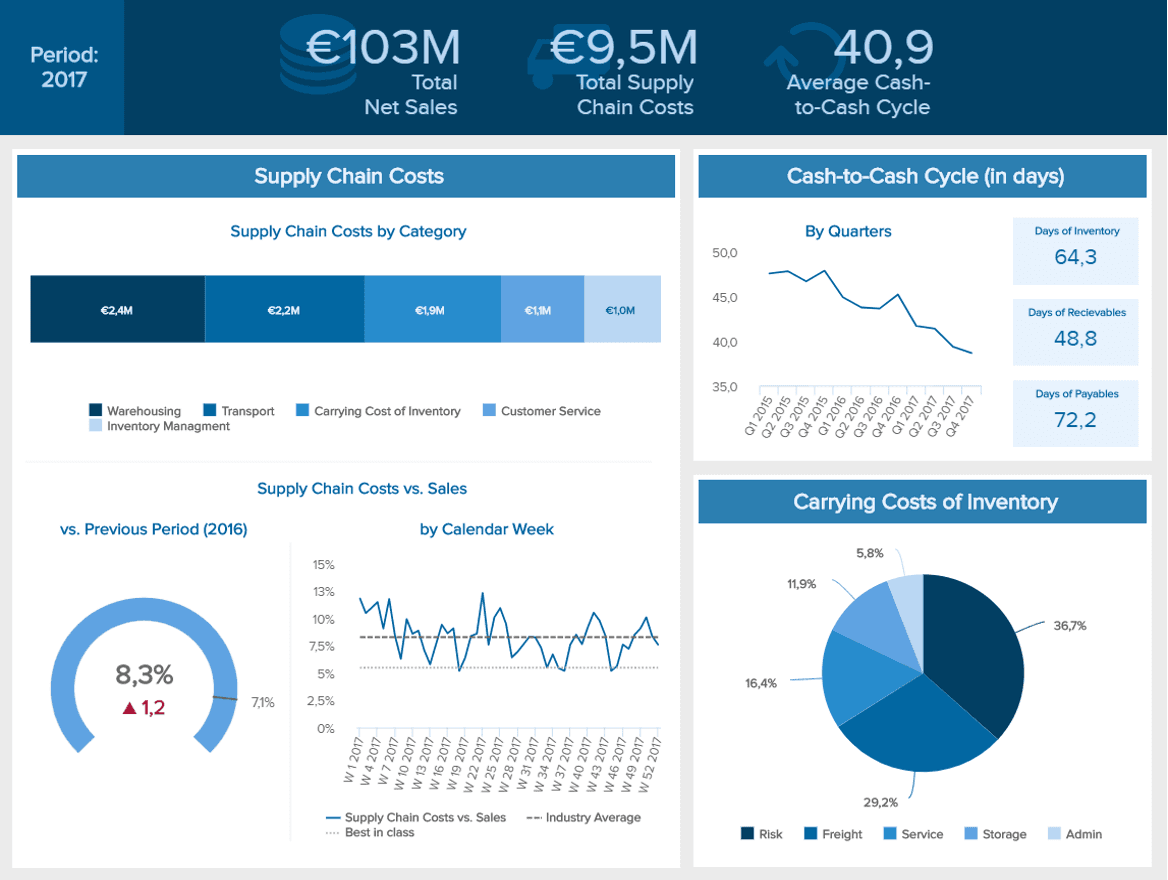Supply Chain Analytics Services: CaseWhen Consulting
Harness the Power of Your Supply Chain Data
Transforming Supply Chain Insights into Strategic Actions for Unmatched Operational Excellence
Enhance Supply Chain Visibility: Gain real-time insights into your supply chain operations.
Optimize Inventory Management: Streamline processes and minimize holding costs.
Predict Disruptions: Utilize predictive modeling to anticipate and mitigate supply chain risks.
What is Supply Chain Analytics?
10 KPIs of Supply Chain Analytics
How is Analytics Used in Supply Chain Management?
Improved Supply Chain Visibility
Enhanced supply chain visibility involves using data analytics to gain real-time insights into supply chain operations. Analytics helps track inventory levels, monitor supplier performance, and manage logistics more effectively.
Example: Implementing real-time tracking systems to monitor the location and status of shipments, leading to more accurate delivery estimates.
Benefit: Improved visibility enables faster decision-making and enhances the ability to respond to disruptions, leading to smoother supply chain operations.
Optimized Inventory Management
Optimizing inventory management means using data analytics to balance supply with demand more effectively. Analytics helps identify trends in demand and adjust inventory levels accordingly.
Example: Using predictive analytics to forecast demand for seasonal products, ensuring optimal inventory levels and reducing excess stock.
Benefit: Better inventory management reduces holding costs, minimizes stockouts, and improves cash flow, leading to more efficient supply chain operations.
Risk Management
Risk management in supply chains involves using analytics to identify and mitigate potential disruptions. Analytics can predict issues such as supplier delays or demand fluctuations, enabling proactive management.
Example: Applying risk modeling to assess the impact of geopolitical events on supply chain operations, allowing companies to develop contingency plans.
Benefit: Proactive risk management minimizes the impact of disruptions, ensures continuity of supply, and enhances supply chain resilience.
By leveraging supply chain analytics, businesses can gain critical insights, optimize operations, and manage risks more effectively, leading to improved supply chain performance and competitive advantage.
CaseWhen's Innovative Approach
Unique Methodology for Supply Chain Analytics
At CaseWhen, we redefine supply chain analytics with an innovative methodology that surpasses traditional approaches. Our blend of advanced data analysis techniques and industry expertise provides actionable insights that drive strategic supply chain decisions.
Advanced Analytics Techniques and Industry Expertise
What sets CaseWhen apart is the integration of cutting-edge analytics with deep supply chain knowledge. This powerful combination offers a comprehensive understanding of your unique supply chain challenges and opportunities, enabling us to develop tailored solutions that deliver measurable results.
Customized Solutions for Your Business
Recognizing that one-size-fits-all doesn’t work in supply chain analytics, CaseWhen designs customized solutions that align with your specific supply chain goals and requirements. Whether you need advanced forecasting models, inventory optimization strategies, or supply chain risk assessment, we ensure our solutions are tailored to meet your business objectives.
Tailored Strategies: Solutions designed to meet your specific supply chain needs.
Expert Insights: Leverage our deep industry knowledge for a competitive edge.
Proven Results: Enhance supply chain performance with data-driven decisions.
Unlock the full potential of your supply chain data with CaseWhen’s Supply Chain Analytics Consultancy Service. Let us help you transform insights into actionable strategies that drive your business forward.
Need Professional Help with Your Supply Chain Analytics?
Explore how we can empower your team and drive your business forward with Power BI.
Berlin, DE




